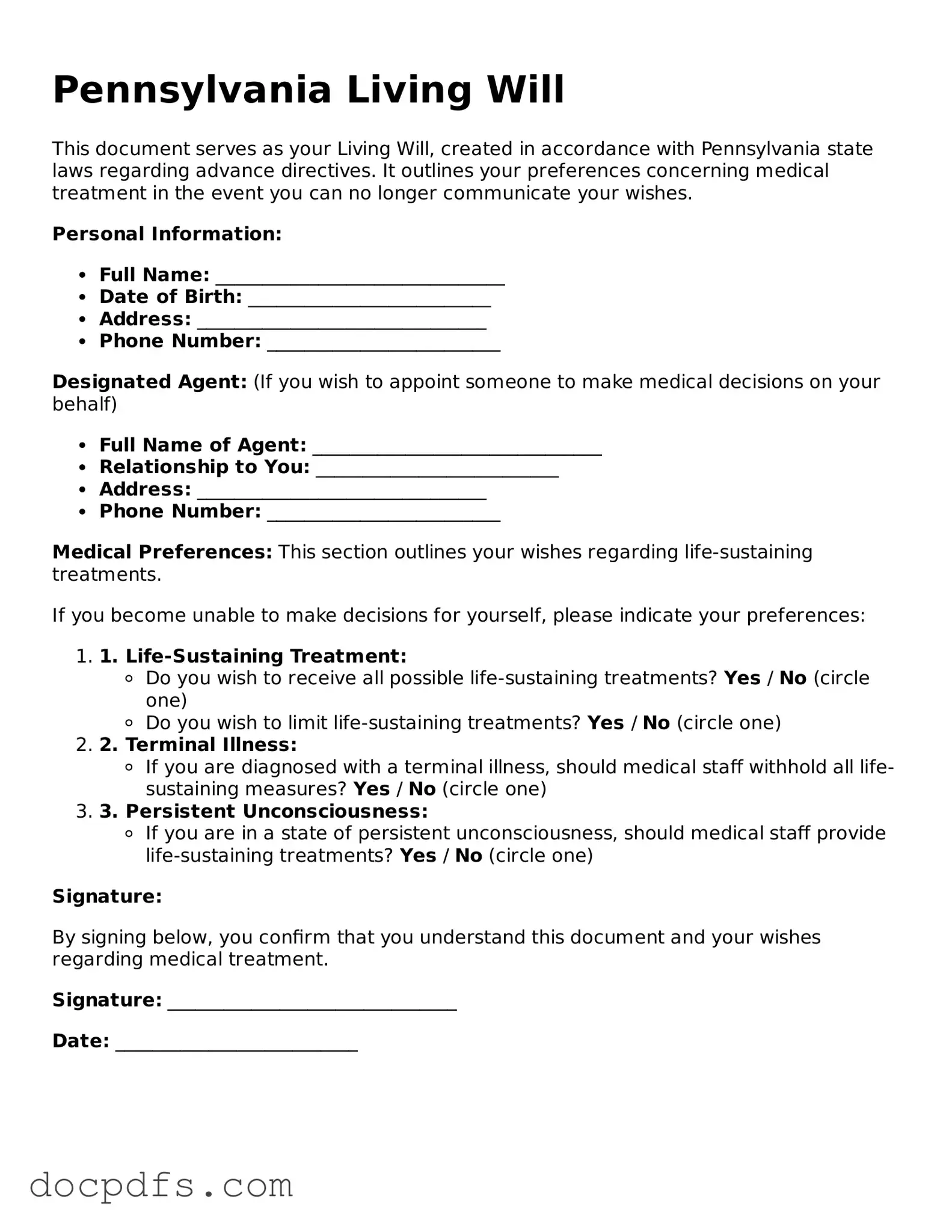What is a Pennsylvania Living Will?
A Pennsylvania Living Will is a legal document that outlines your preferences for medical treatment in the event that you become unable to communicate your wishes. This includes decisions about life-sustaining treatments, such as resuscitation and artificial nutrition. By creating this document, you ensure that your healthcare providers and loved ones understand your desires regarding end-of-life care.
Who should consider creating a Living Will?
Anyone over the age of 18 should consider creating a Living Will. Life can be unpredictable, and having a clear outline of your wishes can provide peace of mind for both you and your family. It’s especially important for individuals with serious health conditions or those who are planning for future medical procedures.
How do I create a Living Will in Pennsylvania?
Creating a Living Will in Pennsylvania is straightforward. Here are the steps you should follow:
-
Reflect on your values and preferences regarding medical treatment.
-
Obtain a Living Will form, which can often be found online or through healthcare providers.
-
Fill out the form, clearly stating your wishes.
-
Sign the document in the presence of two witnesses, who cannot be your family members or healthcare providers.
-
Keep the original document in a safe place and share copies with your healthcare providers and loved ones.
Can I change or revoke my Living Will?
Yes, you have the right to change or revoke your Living Will at any time, as long as you are still competent to make decisions. To revoke it, simply destroy the original document and inform your healthcare providers and loved ones of your decision. If you wish to create a new Living Will, make sure to follow the proper procedures again.
What happens if I don’t have a Living Will?
If you do not have a Living Will, medical decisions may be made by your family members or healthcare providers based on what they believe you would have wanted. This can lead to confusion and potential conflict among your loved ones. Having a Living Will helps to avoid such situations by clearly stating your preferences.
Is a Living Will the same as a Power of Attorney?
No, a Living Will and a Power of Attorney are different documents. A Living Will specifically addresses your medical treatment preferences, while a Power of Attorney allows you to appoint someone to make decisions on your behalf if you are unable to do so. You can have both documents in place to ensure comprehensive coverage of your wishes.
Do I need a lawyer to create a Living Will?
You do not need a lawyer to create a Living Will in Pennsylvania. The form is designed to be user-friendly, allowing individuals to complete it on their own. However, consulting with a legal professional can provide additional peace of mind and ensure that your document meets all legal requirements.
How can I ensure my Living Will is followed?
To ensure that your Living Will is followed, share copies with your healthcare providers, family members, and anyone else involved in your care. It’s also a good idea to discuss your wishes with them openly. Regularly reviewing and updating your Living Will as your circumstances change can further guarantee that your preferences are respected.

